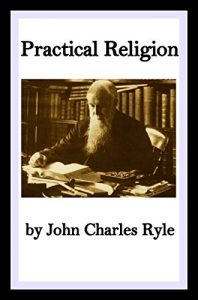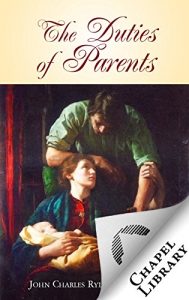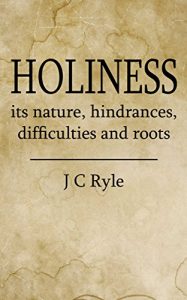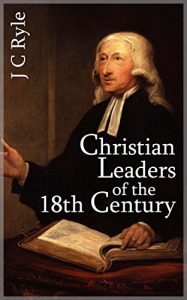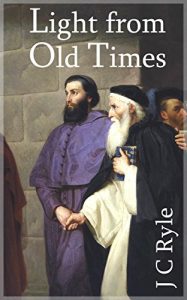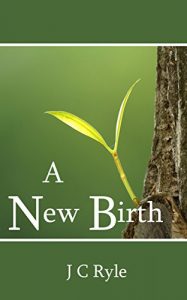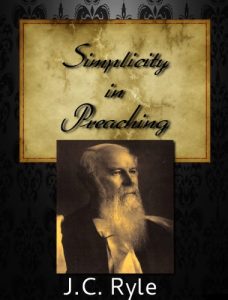This vintage book from 1878 has been digitally edited and converted to downloadable format with additional illustrations. A great classic for the home or classroom, an interesting old-fashioned reference book, and an outstanding find.
PREFACE:
"The volume now in the reader's hands is intended to be a companion to two other volumes which I have already published, entitled "Knots Untied," and "Old Paths."
"Knots Untied" consists of a connected series of papers, systematically arranged, about the principal points which form the subject of controversy among Churchmen in the present day. All who take interest in such disputed questions as the nature of the Church, the Ministry, Baptism, Regeneration, the Lord's Supper, the Real Presence, Worship, Confession, and the Sabbath, will find them pretty fully discussed in "Knots Untied."
"Old Paths" consists of a similar series of papers about those leading doctrines of the Gospel which are generally considered necessary to salvation. The inspiration of Scripture, sin, justification, forgiveness, repentance, conversion, faith, the work of Christ, and the work of the Holy Spirit, are the principal subjects handled in "Old Paths."
The present volume contains a series of papers about "practical religion," and treats of the daily duties, dangers, experience, and privileges of all who profess and call themselves true Christians. Read in conjunction with another work I have previously put out, called "Holiness," I think it will throw some light on what every believer ought to be, to do, and expect.
One common feature will be found in all the three volumes. I avow it frankly at the outset, and will not keep it back for a moment. The standpoint I have tried to occupy, from first to last, is that of an Evangelical Churchman.
I say this deliberately and emphatically. I am fully aware that Evangelical churchmanship is not popular and acceptable in this day. It is despised by many, and has "no form or comeliness" in their eyes. To avow attachment to Evangelical views, in some quarters, is to provoke a sneer, and to bring on yourself the reproach of being an "unlearned and ignorant man." But none of these things move me. I am not ashamed of my opinions. After forty years of Bible-reading and praying, meditation and theological study, I find myself clinging more tightly than ever to "Evangelical" religion, and more than ever satisfied with it. It wears well: it stands the fire. I know no system of religion which is better. In the faith of it I have lived for the third of a century, and in the faith of it I hope to die.
The plain truth is, that I see no other ground to occupy, and find no other rest for the sole of my foot. I lay no claim to infallibility, and desire to be no man's judge. But the longer I live and read, the more I am convinced and persuaded that Evangelical principles are the principles of the Bible, of the Articles and Prayer-book, and of the leading Divines of the reformed Church of England. Holding these views, I cannot write otherwise than I have written.
I now send forth this volume with an earnest prayer that God the Holy Ghost may bless it, and make it useful and helpful to many souls.
J. C. RYLE,
NOVEMBER, 1878. VICAR OF STRADBROKE"
PREFACE:
"The volume now in the reader's hands is intended to be a companion to two other volumes which I have already published, entitled "Knots Untied," and "Old Paths."
"Knots Untied" consists of a connected series of papers, systematically arranged, about the principal points which form the subject of controversy among Churchmen in the present day. All who take interest in such disputed questions as the nature of the Church, the Ministry, Baptism, Regeneration, the Lord's Supper, the Real Presence, Worship, Confession, and the Sabbath, will find them pretty fully discussed in "Knots Untied."
"Old Paths" consists of a similar series of papers about those leading doctrines of the Gospel which are generally considered necessary to salvation. The inspiration of Scripture, sin, justification, forgiveness, repentance, conversion, faith, the work of Christ, and the work of the Holy Spirit, are the principal subjects handled in "Old Paths."
The present volume contains a series of papers about "practical religion," and treats of the daily duties, dangers, experience, and privileges of all who profess and call themselves true Christians. Read in conjunction with another work I have previously put out, called "Holiness," I think it will throw some light on what every believer ought to be, to do, and expect.
One common feature will be found in all the three volumes. I avow it frankly at the outset, and will not keep it back for a moment. The standpoint I have tried to occupy, from first to last, is that of an Evangelical Churchman.
I say this deliberately and emphatically. I am fully aware that Evangelical churchmanship is not popular and acceptable in this day. It is despised by many, and has "no form or comeliness" in their eyes. To avow attachment to Evangelical views, in some quarters, is to provoke a sneer, and to bring on yourself the reproach of being an "unlearned and ignorant man." But none of these things move me. I am not ashamed of my opinions. After forty years of Bible-reading and praying, meditation and theological study, I find myself clinging more tightly than ever to "Evangelical" religion, and more than ever satisfied with it. It wears well: it stands the fire. I know no system of religion which is better. In the faith of it I have lived for the third of a century, and in the faith of it I hope to die.
The plain truth is, that I see no other ground to occupy, and find no other rest for the sole of my foot. I lay no claim to infallibility, and desire to be no man's judge. But the longer I live and read, the more I am convinced and persuaded that Evangelical principles are the principles of the Bible, of the Articles and Prayer-book, and of the leading Divines of the reformed Church of England. Holding these views, I cannot write otherwise than I have written.
I now send forth this volume with an earnest prayer that God the Holy Ghost may bless it, and make it useful and helpful to many souls.
J. C. RYLE,
NOVEMBER, 1878. VICAR OF STRADBROKE"
